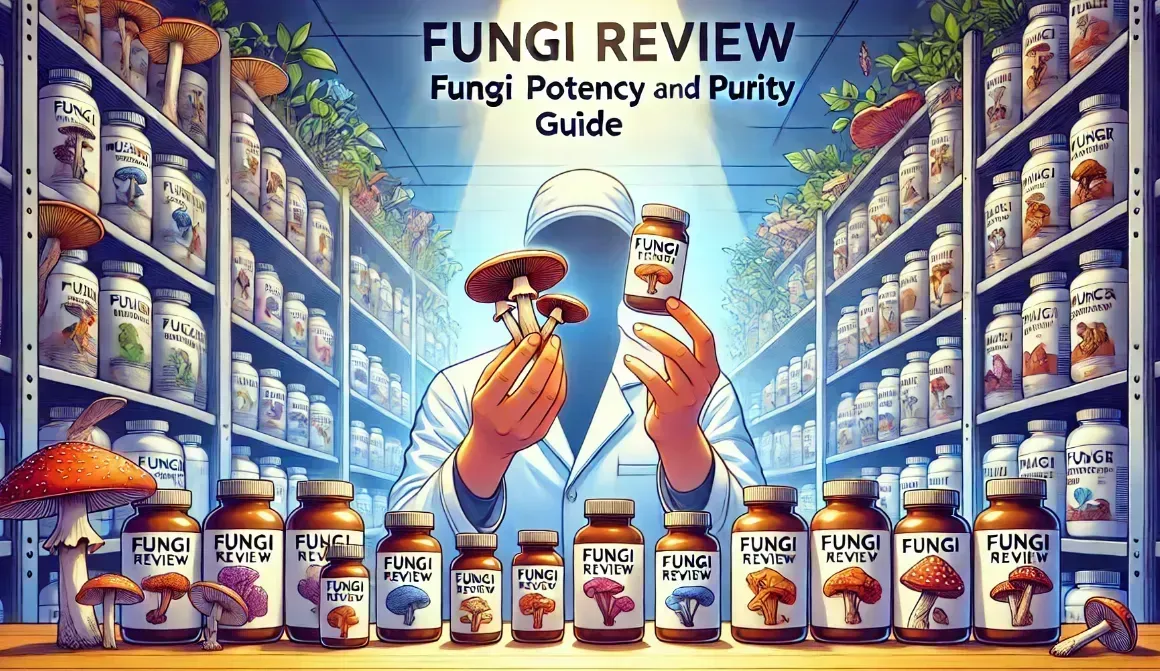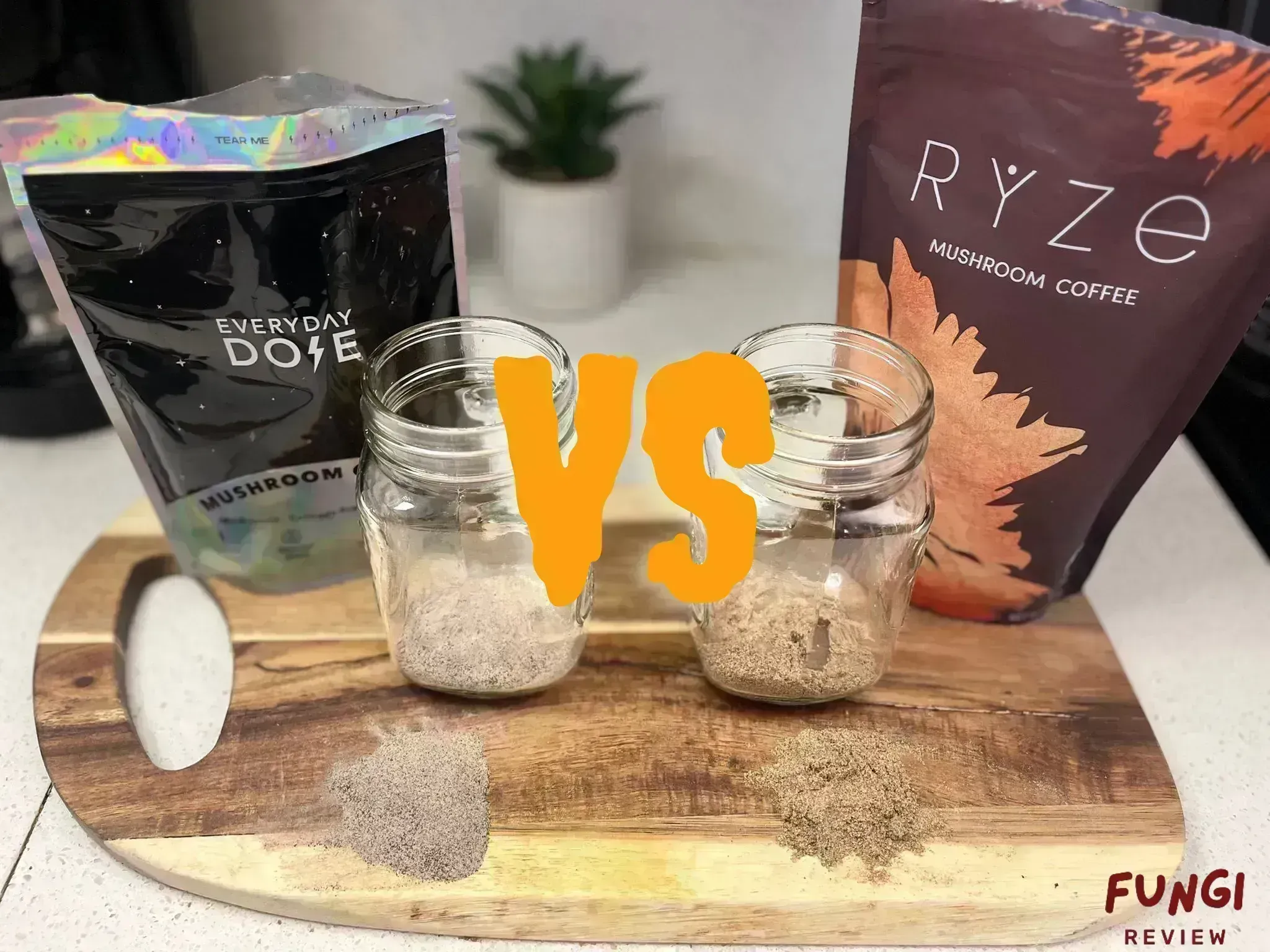Mushroom supplements have gained significant popularity in recent years, with more and more people turning to these natural products for their potential health benefits. From boosting the immune system to enhancing cognitive function, mushrooms are being hailed as powerful tools in the wellness industry. But what is it about these fungi that makes them so beneficial? In this blog, we’ll explore the science behind mushroom supplements, diving into the bioactive compounds they contain, how these compounds work in the body, and what the research says about their effectiveness.
Understanding the Key Bioactive Compounds in Mushrooms
Medicinal mushrooms contain a variety of bioactive compounds that contribute to their health benefits. These compounds include polysaccharides, particularly beta-glucans, triterpenes, polyphenols, and various vitamins and minerals. Each of these compounds plays a unique role in supporting health.
1. Beta-Glucans: The Immune Modulators
Beta-glucans are one of the most studied and well-known compounds in medicinal mushrooms. These polysaccharides are complex sugars found in the cell walls of mushrooms and are known for their immune-modulating properties.
- How Beta-Glucans Work: Beta-glucans work by interacting with specific receptors on immune cells, such as macrophages, dendritic cells, and neutrophils. This interaction triggers a cascade of immune responses, including the activation of these immune cells and the production of cytokines, which are signaling molecules that help regulate the immune response. Essentially, beta-glucans “train” the immune system to respond more effectively to pathogens, such as bacteria, viruses, and even cancer cells.
- Research on Beta-Glucans: Numerous studies have demonstrated the immune-boosting effects of beta-glucans. For example, a study published in the journal by the National Library of Medicine found that beta-glucans from Reishi mushrooms (Ganoderma lucidum) enhanced the activity of natural killer (NK) cells, which play a crucial role in the body’s defense against tumors and virally infected cells. Another study in PLOS ONE reported that beta-glucans could enhance the immune response in elderly individuals, potentially reducing the incidence of respiratory infections.
2. Triterpenes: Anti-Inflammatory and Antioxidant Powerhouses
Triterpenes are another important class of bioactive compounds found in mushrooms, particularly in Reishi (Ganoderma lucidum) and Chaga (Inonotus obliquus). These compounds are known for their anti-inflammatory, antioxidant, and anticancer properties.
- How Triterpenes Work: Triterpenes exert their effects through several mechanisms. They inhibit the production of pro-inflammatory cytokines, such as TNF-alpha and IL-6, thereby reducing inflammation in the body. Additionally, triterpenes have been shown to scavenge free radicals, which are unstable molecules that can cause oxidative stress and damage cells. By neutralizing these free radicals, triterpenes help protect cells from damage and reduce the risk of chronic diseases, such as heart disease and cancer.
- Research on Triterpenes: The anticancer potential of triterpenes has been a focus of several studies. For instance, research published in the report by the National Library of Medicine demonstrated that triterpenes from Reishi mushrooms could induce apoptosis (programmed cell death) in cancer cells, suggesting a potential role in cancer therapy.
3. Erinacines and Hericenones: The Neuroprotective Agents
Lion’s Mane (Hericium erinaceus) is a unique mushroom known for its potential cognitive benefits. This mushroom contains two special classes of compounds: erinacines and hericenones. These compounds are believed to stimulate the production of nerve growth factor (NGF), a protein essential for the growth, maintenance, and survival of nerve cells.
- How Erinacines and Hericenones Work: NGF is crucial for neurogenesis, the process of forming new neurons in the brain. Erinacines and hericenones from Lion’s Mane mushrooms have been shown by the National Library of Medicine to cross the blood-brain barrier and stimulate NGF production, which in turn promotes the repair and regeneration of nerve cells. This action may help protect against neurodegenerative diseases, such as Alzheimer’s and Parkinson’s, and improve cognitive function.
- Research on Erinacines and Hericenones: A study published by the National Library of Medicine found that Lion’s Mane supplementation improved cognitive function in older adults with mild cognitive impairment. The researchers suggested that the increase in NGF levels could be responsible for the cognitive improvements observed. Additionally, animal studies have shown that erinacines can reduce amyloid-beta plaques in the brain, which are characteristic of Alzheimer’s disease.
The Mechanisms Behind Mushroom Supplements
Now that we’ve explored the key bioactive compounds in medicinal mushrooms let’s take a closer look at how these compounds work in the body to provide their various health benefits.
1. Immune System Modulation
One of the most significant benefits of medicinal mushrooms is their ability to modulate the immune system. Unlike immune boosters that simply ramp up immune activity, mushrooms can help balance and regulate the immune response. This is particularly important for individuals with autoimmune conditions, where the immune system is overactive, as well as for those with weakened immune systems.
- Balancing Immune Responses: The immune-modulating effects of mushrooms are primarily due to their beta-glucan content. As mentioned earlier, beta-glucans interact with immune cells, enhancing their ability to detect and respond to pathogens. However, mushrooms also contain other compounds, such as triterpenes and polysaccharides, that can help modulate the immune response, preventing it from becoming overactive. This balance is crucial for maintaining immune health and preventing chronic inflammation.
- Clinical Applications: The immune-modulating properties of mushrooms have led to their use in clinical settings. For example, in traditional Chinese medicine, Reishi mushrooms are often prescribed to help manage conditions such as asthma, allergies, and autoimmune diseases. Modern research supports these uses, with studies showing that Reishi can help reduce inflammation and improve immune function in individuals with chronic conditions.
2. Neuroprotection and Cognitive Enhancement
Another exciting area of research is the potential of medicinal mushrooms to support brain health and cognitive function. As we’ve seen, Lion’s Mane contains compounds that stimulate NGF production, promoting the growth and repair of nerve cells.
- Supporting Neurogenesis: Neurogenesis is the process by which new neurons are formed in the brain. This process is essential for learning, memory, and overall cognitive function. The compounds in Lion’s Mane, particularly erinacines and hericenones, have been shown to promote neurogenesis by increasing NGF levels. This may help protect against age-related cognitive decline and neurodegenerative diseases.
- Enhancing Cognitive Function: Beyond their neuroprotective effects, Lion’s Mane mushrooms have also been shown to enhance cognitive function. Studies in both animals and humans have demonstrated improvements in memory, learning, and overall cognitive performance with Lion’s Mane supplementation. This makes it a promising natural option for individuals looking to support brain health as they age.
3. Anti-Inflammatory and Antioxidant Effects
Chronic inflammation and oxidative stress are at the root of many chronic diseases, including heart disease, diabetes, and cancer. Medicinal mushrooms offer powerful anti-inflammatory and antioxidant effects, helping to combat these underlying causes of disease.
- Reducing Inflammation: Triterpenes, found in mushrooms like Reishi and Chaga, are potent anti-inflammatory agents. They work by inhibiting the production of pro-inflammatory cytokines and reducing the activation of inflammatory pathways in the body. This makes them beneficial for managing conditions associated with chronic inflammation, such as arthritis and inflammatory bowel disease.
- Combating Oxidative Stress: Oxidative stress occurs when there’s an imbalance between free radicals and antioxidants in the body. Free radicals can damage cells, proteins, and DNA, leading to the development of chronic diseases. Mushrooms, particularly those rich in triterpenes and polyphenols, provide powerful antioxidant effects, neutralizing free radicals and protecting cells from damage.
- Supporting Longevity: The antioxidant properties of mushrooms have also been linked to longevity. By reducing oxidative stress and inflammation, mushrooms may help slow down the aging process and reduce the risk of age-related diseases. This is one reason why medicinal mushrooms like Reishi are often referred to as “mushrooms of immortality” in traditional medicine
Please keep in mind mushroom supplements are not FDA-approved and are sold as dietary supplements. To learn more about this, check out our blog on "Why Mushrooms are not FDA Approved"
The Research Behind Mushroom Supplements
While traditional use of medicinal mushrooms spans thousands of years, modern science is beginning to catch up, with a growing body of research supporting their health benefits. Let’s explore some of the key findings from recent studies.
1. Immune System Support
Research consistently shows that mushrooms can support immune health, particularly through the action of beta-glucans. A meta-analysis published in the National Library of Medicine reviewed multiple studies on beta-glucans and found that they significantly enhanced immune function, particularly by increasing the activity of macrophages, NK cells, and other immune cells.
Another study published in BMC Complementary and Alternative Medicine examined the effects of a mushroom extract on immune function in healthy adults. The study found that participants who took the mushroom supplement had increased levels of immunoglobulin A (IgA), an antibody that plays a crucial role in mucosal immunity.
2. Cognitive Function and Neuroprotection
Lion’s Mane has been the subject of several studies focused on cognitive function and neuroprotection. Forbes health mentions a double-blind, placebo-controlled study published in Phytotherapy Research which investigated the effects of Lion’s Mane on cognitive function in older adults with mild cognitive impairment. The study found that participants who took Lion’s Mane showed significant improvements in cognitive function compared to the placebo group. This suggests that Lion’s Mane may be a valuable supplement for individuals looking to support brain health and prevent cognitive decline.
In animal studies, erinacines from Lion’s Mane have been shown to reduce amyloid-beta plaques in the brain, which are characteristic of Alzheimer’s disease. These findings highlight the potential of Lion’s Mane as a neuroprotective agent and its possible role in the prevention and treatment of neurodegenerative diseases.
3. Anti-Cancer Potential
The anti-cancer properties of mushrooms, particularly those containing triterpenes and polysaccharides, have been a significant focus of research. For example, a study published in the National Library of Medicine examined the effects of Reishi mushroom extracts on cancer cells. The researchers found that the extracts induced apoptosis (programmed cell death) in various cancer cell lines, including breast, prostate, and colon cancer. This suggests that Reishi mushrooms may have potential as an adjunct therapy in cancer treatment.
Chaga mushrooms have also been studied for their anti-cancer properties. In another study published by NIH found that Chaga extracts inhibited the growth of cancer cells and reduced tumor size in animal models. The study suggested that the antioxidant and anti-inflammatory effects of Chaga might contribute to its anti-cancer activity.
Practical Applications: How to Incorporate Mushroom Supplements into Your Routine
Given the wide range of health benefits associated with medicinal mushrooms, many people are interested in incorporating them into their daily wellness routines. Here are some practical tips for getting the most out of mushroom supplements:
1. Choosing the Right Supplement
When selecting a mushroom supplement, it’s essential to choose a high-quality product that contains the active compounds necessary for the desired health benefits. Look for supplements that are standardized to contain a specific percentage of beta-glucans, triterpenes, or other bioactive compounds. Additionally, consider whether the supplement contains the fruiting body, mycelium, or both, as this can affect the potency and effectiveness of the product.
2. Dosage and Timing
The optimal dosage of mushroom supplements can vary depending on the type of mushroom and the intended health benefit. It’s generally recommended to start with a lower dose and gradually increase it as needed. Most studies have used doses ranging from 500 mg to 3,000 mg per day, depending on the mushroom and the condition being treated.
Timing is also important. Some mushrooms, like Lion’s Mane, may be best taken in the morning to support cognitive function throughout the day, while others, like Reishi, may be better suited for evening use due to their calming effects.
3. Combining with Other Supplements
Mushroom supplements can be combined with other supplements to enhance their effects but it is advised to talk to a doctor first. For example, pairing Lion’s Mane with omega-3 fatty acids may provide synergistic benefits for brain health, while combining Reishi with ashwagandha may enhance its stress-reducing and immune-modulating properties.
4. Consistency is Key
As with any supplement, consistency is crucial for achieving the best results. Incorporate mushroom supplements into your daily routine and give them time to work. It may take several weeks or even months to notice significant improvements, especially for cognitive and immune health.
Please keep in mind mushroom supplements are not FDA-approved and are sold as dietary supplements. To learn more about this, check out our blog on "Why Mushrooms are not FDA Approved"
Conclusion: Embracing the Power of Mushrooms
The science behind mushroom supplements is compelling, with a growing body of research supporting their wide-ranging health benefits. From immune system modulation to neuroprotection and anti-inflammatory effects, medicinal mushrooms offer a natural and effective way to support overall wellness.
As the popularity of mushroom supplements continues to rise, it's important to choose high-quality products and use them consistently to maximize their benefits. Whether you're looking to boost your immune system, enhance cognitive function, or protect against chronic diseases, medicinal mushrooms provide a powerful tool for achieving your health goals.
Related Blogs:
- How to Identify Trustworthy Mushroom Brands: A guide to evaluating and choosing high-quality mushroom brands.
- Understanding Lab Reports for Mushroom Products: Learn how to read and interpret lab reports to ensure product quality.
- Ultimate Mushroom Product Checklist: A practical guide to evaluating and choosing the best mushroom supplements.
- Why Mushrooms are not FDA Approved: A look into why mushrooms are not FDA approved and how brands can still sell them
Citations: Read for more Info on How Mushroom Supplements Work
-
National Library of Medicine (NLM) - Study on the immune-boosting effects of beta-glucans from Reishi mushrooms:
Beta-Glucans in Reishi Mushrooms -
PLOS ONE - Research on the enhancement of immune response in elderly individuals by beta-glucans:
Beta-Glucans and Immune Response -
National Library of Medicine (NLM) - Study demonstrating the anticancer potential of triterpenes in Reishi mushrooms:
Triterpenes in Reishi Mushrooms -
National Library of Medicine (NLM) - Research showing how erinacines and hericenones from Lion’s Mane stimulate nerve growth factor (NGF) production:
Lion’s Mane and NGF -
Phytotherapy Research - Study on the cognitive benefits of Lion’s Mane in older adults with mild cognitive impairment:
Lion’s Mane and Cognitive Function -
BMC Complementary and Alternative Medicine - Research on the effects of mushroom extract on immune function in healthy adults:
Mushroom Extract and Immune Function -
NIH - Study on Chaga extracts and their potential to inhibit cancer cell growth and reduce tumor size:
Chaga Extracts and Cancer





